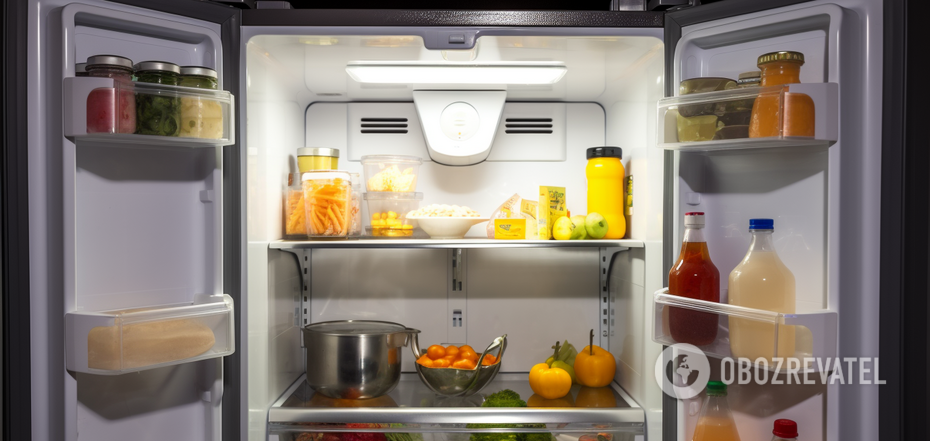Life
What temperature is ideal for the fridge and freezer: food will stay fresh and not spoil
Chilling food not only extends its shelf life, but also prevents the growth of bacteria. But are you sure that your fridge and freezer are set to the correct temperatures?
Neglecting the temperature settings is very dangerous: temperatures above 4°C can spoil milk, eggs and meat. Conversely, low settings already mimic the temperature of a freezer, which is just as harmful for some foods. Sante Plus explains how to find out if the temperature in your fridge is right.
The first and simplest rule is to always choose the temperature recommended in the fridge's instructions.
If you notice that some foods are starting to freeze, then the temperature is too low. Your fridge may be so empty that cold air sinks to the bottom. If the fridge is sufficiently full, the air is immediately absorbed by the food, which prevents frost from forming.
It is important to always check the thermostat to make sure that the temperature inside is well regulated and that the freshness of the food is maintained. Keep an eye on the humidity level - excessive humidity can lead to fungus and mould. Finally, make sure that the ventilation openings are not blocked.
The US Food and Drug Administration (FDA) recommends keeping the refrigerator at 4°C (or below) and the freezer at -17°C to -24°C.
The ideal temperature in the fridge may be lower - from 1.7° to 3.3°C. The main thing is not to exceed the 4°C threshold, as this is when bacteria begin to multiply rapidly. Rapid food spoilage can lead to stomach problems due to pathogenic bacteria such as salmonella and E. coli.
Try these life hacks to help maintain the perfect temperature.
Clean the condenser coils
It is the condenser that allows heat to be dissipated. Dirt, dust, food residues and pet hair can cause the fridge to overheat and damage the compressor. Clean the coils with a brush and vacuum cleaner.
Food containers
To keep food fresh for as long as possible, it is best to cover it so that it is not affected by temperature changes.
The refrigerator door is more susceptible to temperature changes. Do not place perishable food there. Eggs are best stored on a shelf.
Hot food
Hot or warm food in the fridge can cause the cooling system to malfunction. In simple terms, heat will increase the internal temperature, forcing the compressor to work harder.
Earlier, OBOZREVATEL told how to recognise nitrates in vegetables and fruits and neutralise them.
Subscribe to OBOZREVATEL's Telegram and Viber channels to keep up with the latest news.



























